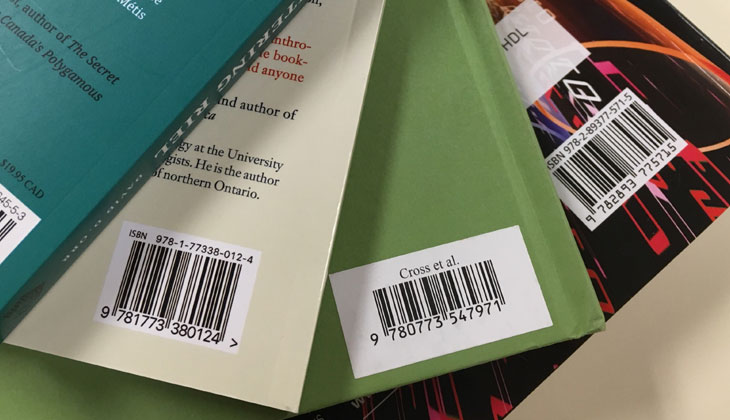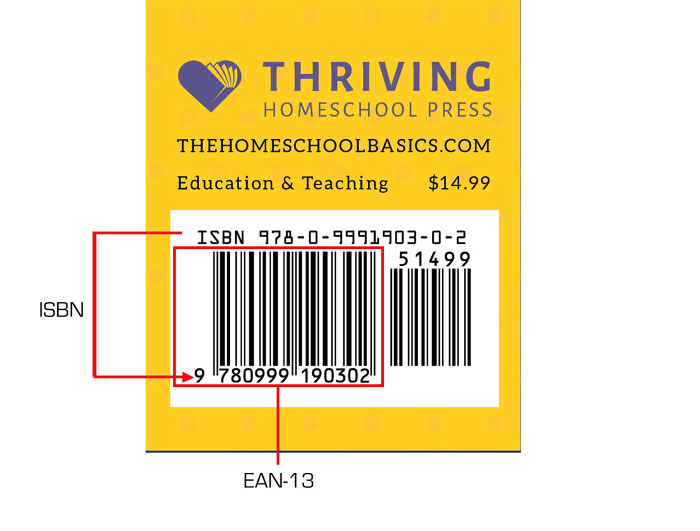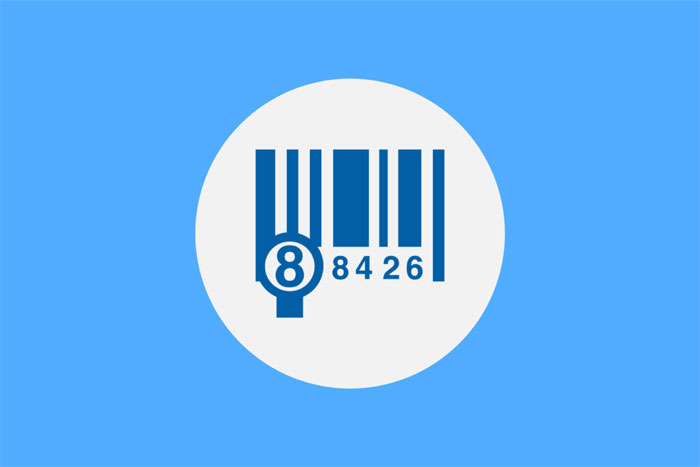
Every one of us must have seen a barcode with a number above it on the back cover of every book. Though many of us are aware of the function of this number yet many of us don’t know what exactly this number is? It is known as an ISBN number, So what is an ISBN Number ? ISBN stands for International Standard Book Number. It is a 13 – digit code which is used as a unique identification tool for books.
What is an ISBN number Use?
This number is used by the publishers, booksellers, libraries, digital retailers and supply chain participants. So the identification number helps in ordering, listing, sales and stocks of the books across the globe. It also helps the reader to find their specific editions on digital platforms via ISBN number. The 13-digit ISBN number became mandatory in 2007 before this it consisted of 10 – digits only. As ISBN numbers do not expire, so to overcome that issue old 10-digit ISBN numbers can be converted into 13-digit ISBN numbers by Bowker’s conversion tool.
The ISBN number is fixed, which means they cannot be transferred from one book format to another format of the same book. Like if an author is publishing a book in paper format he will take an ISBN number for that and for the same book in digital format as an e-book new ISBN number is required. Similarly the same e-book in different languages will require a new ISBN number. ISBN Number is allotted to books only not to magazines, journals or periodicals. For the latter an eight digit ISSNs ( International Standard Serial Numbers) is present.
Significance of 13- digits in an ISBN number
As we all know that the 13 digit number code denotes specific information. It is made up of Five Parts, these are as follows”
1. Prefix Element: The First Three digit denotes that the product is a Book. It is represented by 978 or 979.
2. Registration group Element: This helps in the identification of the geographical area that means the country or the language area participating in the ISBN system. This may be 1 to 5 digits in length.
For example :
0 or 1 is for English
2 for French
3 for German
4 for Japan
5 for Russia
7 for China
Also, one more thing to know is the fact that the rarer the language longer the number identifier will be. Like Indonesia is “602” whereas Turkey is “9944”.
3. Registrant Element: This is for the denotation of the Publisher and this may be up to 7 digits in length.
4. Publication Element: This identifies the title, edition along with the format of the book. This may be up to 6 digits long.
5. Check Digit: The last and final digit known as “check” digit mathematically validates the rest of the ISBN number. It is calculated using a Modulus 10 system with alternate weights of 1 and 3.

Types of ISBN Number:
The ISBN number till December 2006 was a 10-digit code, but from January onwards it has been a 13-digit code. On this basis the ISBN number is classified into two types —
a) ISBN 10 — has 4 parts which include Group Identifier (for identifying country or region), Publisher Identifier (publisher of the book), Title identifier (book edition) and Check digit (calculated by using the first nine digits in the ISBN and is used to check the accuracy of the ISBN).
b) ISBN 13 — present near the barcode, will start with 978 or 979
But like any curious mind, what does the multiple lines and another number stand for?? Many of us also confuse barcode and ISBN as interchangeable, but they are different. The barcode is meant for only one purpose that is sales of the book. The barcode reveals the price and the currency in which it is sold at any place on the globe. The barcode is changeable as the price of the book is changeable. If you notice a barcode there are two barcodes side by side.
The barcode that is on the left side is the EAN generated from the ISBN number. The other number on the right side is a 5-digit add-on, known as an EAN-5. This contains the price of the book. Out of the 5 digits, the first digit is always 5 and is mandatory for scanners to read. After that the remaining four digits show the price of the book. For example: if the number reads 51876 then it denotes that the price is $18.76 for that book.
But do all books need an ISBN number to sell? Well, the answer is no. For paper print books and audio books ISBN number is mandatory whereas for e-books it is not mandatory. So why this is mandatory for paper books, the ISBN number helps in tracking the books across different bookstores and libraries, thus helping in maintaining the supply chain and distribution according to the stock. Therefore if any print book is another with an ISBN number it can’t be sold. So, if you are a self publishing author then go and grab your ISBN number. You can buy it in bulk or single, depending on choice.
But why doesn’t an ebook need an ISBN number, as most of the digital platforms for ebooks like Amazon kindle, Apple Books, Barnes and Noble, Kobo, etc have their own identification and verification system of the e-books. Although if an author wants to have an ISBN number for the ebook version of his book, it will always be more beneficial as it gives uniformity in tracking the sales instead of having different identification codes from different websites.
How to Search for an ISBN Number?
If you want to search for a book with its ISBN number then visit ISBNsearch.org website. Type the ISBN number in the search column and you will find the details of the book.
How did the ISBN number come into existence?
Well cracking the complex intricate numerical system dates back in the time of world war 2. A budding mathematician named Gordon Foster was working as a code breaker at Bletchley park where he scanned millions of numbers finding out the pattern in the code used by the Japanese army. After many years when the book industry was looking for a standardized mechanism for book sales and distribution WH Smith approached Gordon Foster to create a numerical system for the books.

This led to a standard book number which consisted of 9 digits in 1967 in the UK. This led to the development of ISBN system usage and acceptance worldwide. In 1970 the 9-digit number was modified into a 10-digit number which is referred to as ISBN 10 at present. Then in 2007 the present ISBN 13 came into existence.
How to Get an ISBN Number?
In simple steps you can get an ISBN, in the following way:
- The first step is to decide whether you want ISBNs to be paid or free of cost. As publishers are the one who buy the ISBNs, so for that reason it is better to buy in bulk or in a small pack (self publishing author) to be cost effective. There are agencies who sell ISBNs for free like Draft2Digital, IngramSpark, ebook partnership, etc. Every new format of the same title will need a new ISBN number (hard cover, ebook, different language of the same book, updated and edited version, or the new edition of the book). So rather than buying a single ISBN which costs $125 in the US, it’s better to buy a pack of 10 ISBNs for $295 or 100 ISBNs for $575.
- Now the second step is to identify the providers in your region. Well, every country has an agency that issues ISBNs. Bowker is the official ISBN agency for the USA. Similarly, Nielsen is for the UK. In some countries like India and Canada ISBN is issued for free of cost. These agencies also sell barcodes.
- Lastly, buy ISBNs in bulk for the best Value: As we all know by now that an ISBN number doesn’t expire. So, buying in a bulk gives you cost effective numbers. Now comes the question: How much time will it take to get the ISBN number once you apply for it at Bowker? If the buyer chooses the non-priority option to deliver the number then it takes five working business days to receive the number. If the buyer chooses the priority option then it takes two working business days to receive the numbers. Lastly, if you choose the express processing then within 24 hours you will receive the ISBNs.
- To buy the barcode, buying an ISBN number first is mandatory. Barcodes can be bought at Bowker and they have offers in combos also like 1 Barcode + 1 ISBN is for $150; whereas! Barcode + 10 ISBNs is or $320.
Once the publisher has received the ISBN numbers. It’s time to get it registered through the Bowker or any international equivalent of your country. Once you publish your book, register it at Bowkerlink. This will add your book to Bowker’s Books in Print and Global Books in print. This will help in the global presence of your book.

Also Read – A Glimpse To Dive In: The Elements Of A Book Cover
ISBN numbers are essential for your book if an author wants his work to be displayed along various libraries for the widespread geographical distribution. Overdrive is the largest supplier of books to libraries and schools in the world. If an author wants to tie up with Overdrive then ISBN is a must.
In the end it’s now so easy to answer “ What is an ISBN number ?” Well, it is a numerical tool to identify the book in spite of where the buyer and seller belong. You can be at the extreme end of the globe but still the publisher will know that his book is selling with 5he help of this 13-digit identification number. For every format of the same book a separate ISBN number is needed but mandatory in case of print books as ebook platforms have their own identification system. Still, it is preferred to have an ISBN number for your ebook too to standardize the distribution and sales of the book.
Related Post

5 Common Book Promotion Challenges
Book promotion challenges enter the spotlight as soon as an

Difference Between Copyediting And Proofreading
As the saying goes, “nothing is perfect in life”, so



